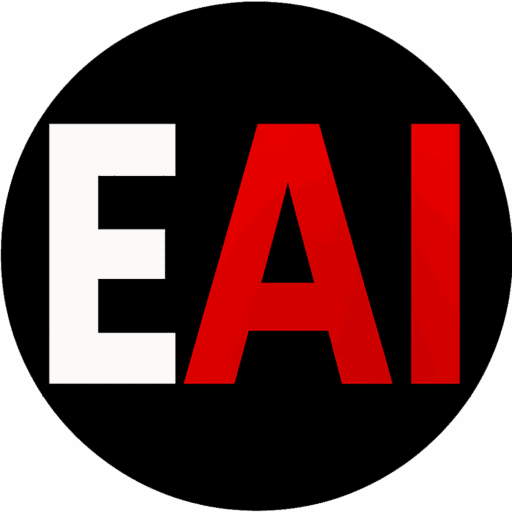31 July 2025
Positrons Drive to Revolutionise AI Hardware
Positron has decided to position itself as a direct competitor to Nvidia, a giant in the AI inference chip market, suggesting their strong confidence in their technological advancements and business strategy.
Utilising Intel’s U.S. facilities to fabricate their chips, Positron is not only aiming to ensure top-notch quality but is also leveraging the geopolitical benefits of local manufacturing. This move may also suggest an emphasis on supply chain security and reliability, key concerns for enterprises currently reliant on overseas production capabilities.
Enterprises that adopt Positron’s chips can potentially benefit from increased efficiency and reduced operational costs associated with AI deployments. With AI becoming integral to numerous business operations, from customer service automation to real-time data analysis, having a reliable, efficient, and cost-effective hardware solution is paramount.
Positron’s focus on tailoring their chips for enterprise use could set them apart from competitors who primarily target consumer markets or gaming industries, offering a fresh, enterprise-focused alternative to Nvidia’s well-established offerings.
Strategic Focus on Customisation and Integration
An integral part of Positron’s plan involves customising their chips to meet the specific needs of their clients, promising more seamless integration with existing systems.
This strategic focus highlights an industry trend towards highly adaptive AI hardware solutions, which can be tailored to specific applications in different sectors, from healthcare to automotive industries.
By developing chips that promise superior performance in diverse environments, Positron is poised to provide enterprises with the flexibility needed to maximise the benefits of their AI investments.
By cooperating closely with enterprises during the design and implementation phases, Positron could provide more robust and reliable support compared to off-the-shelf solutions.
This includes offering comprehensive integration services to avoid the common pitfalls associated with implementing new hardware into existing systems, thus reducing downtime and ensuring a quicker return on investment. As enterprises increasingly seek bespoke solutions rather than generic ones, Positron’s model may attract clients looking for partners who understand their specific business needs.
The Broader Implications for the AI Ecosystem
The entry of Positron into the AI inference chip market could have significant implications for the broader AI ecosystem. It introduces a competitive element that might drive technological advancements and price adjustments from established players like Nvidia.
As Positron pushes boundaries, they can potentially inspire other companies to innovate in areas such as chip efficiency, integration capabilities, and manufacturing processes, leading to a richer and more varied landscape of AI hardware solutions.
Additionally, Positron’s focus on the enterprise side aligns with the ongoing evolution where AI is becoming a pervasive tool across different industries.
By reducing the cost and increasing the efficiency of AI deployments, Positron is not only catering to immediate enterprise needs but also contributing to the long-term growth and sustainability of AI technologies in professional settings. This has the potential to lower entry barriers for smaller companies keen to harness the power of AI, broadening the adoption of AI solutions across sectors.
Key Data Points
- Positron targets the AI inference chip market with a focus on enterprise customers, positioning itself as a key competitor to Nvidia.
- They manufacture their chips in the U.S. at Intel-owned facilities, emphasising quality, supply chain security, and geopolitical advantages.
- Positron chips offer significantly higher efficiency, delivering up to 3.5 times better performance per dollar and consuming around 66% less power than comparable Nvidia GPUs.
- Their Atlas system supports large transformer models, achieving up to 93% bandwidth utilisation and outperforming NVIDIA H200 in inference speed and power consumption.
- Future products like the Titan system promise support for even larger AI models (up to 16 trillion parameters) and enable parallel hosting of multiple AI agents, addressing scalability and multimodal AI needs.
- Positron emphasises close collaboration with enterprise clients to customise chips for specific applications and ensure smooth integration, reducing downtime and operational costs.
- By focusing exclusively on inference rather than general AI training workloads, Positron enhances energy efficiency and cost effectiveness in real-world AI deployment environments.
- The company leverages a memory-optimised FPGA-based architecture compatible with major AI frameworks such as Hugging Face and OpenAI, simplifying developer adoption.
- Positronns U.S.-based manufacturing and strategic partnerships allow it competitive pricing advantages versus traditional chipmakers reliant on overseas fabs.
- The entrance of Positron in the market is driving innovation and may pressure established players to improve chip efficiency, pricing, and integration support.
- Through energy-efficient, enterprise-focused AI chips, Positron contributes to lowering barriers for broader AI adoption across industries by reducing costs and increasing deployment scalability.

EfficiencyAI Newsdesk
At Efficiency AI Newsdesk, we’re committed to delivering timely, relevant, and insightful coverage on the ever-evolving world of technology and artificial intelligence. Our focus is on cutting through the noise to highlight the innovations, trends, and breakthroughs shaping the future from global tech giants to disruptive startups.

